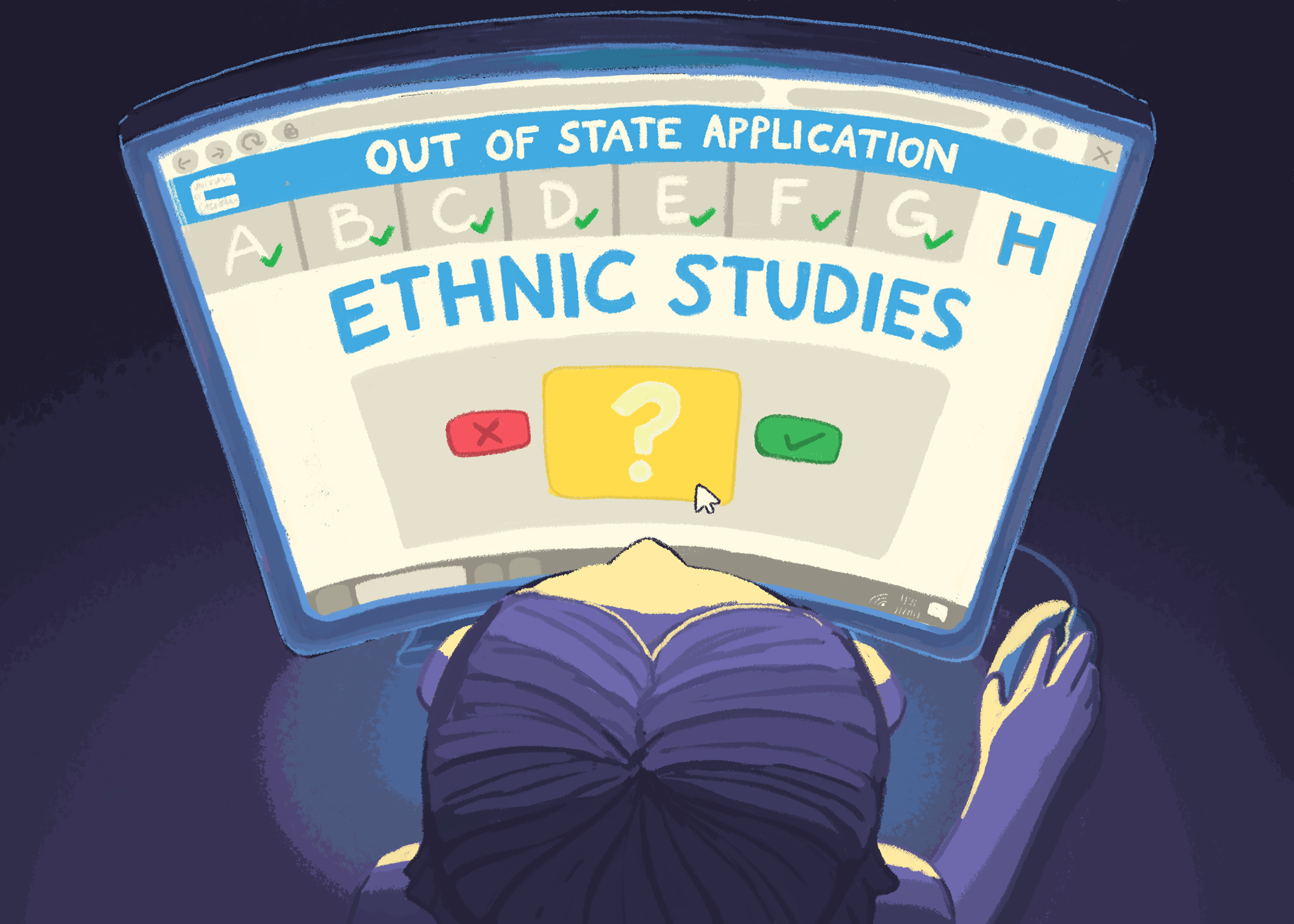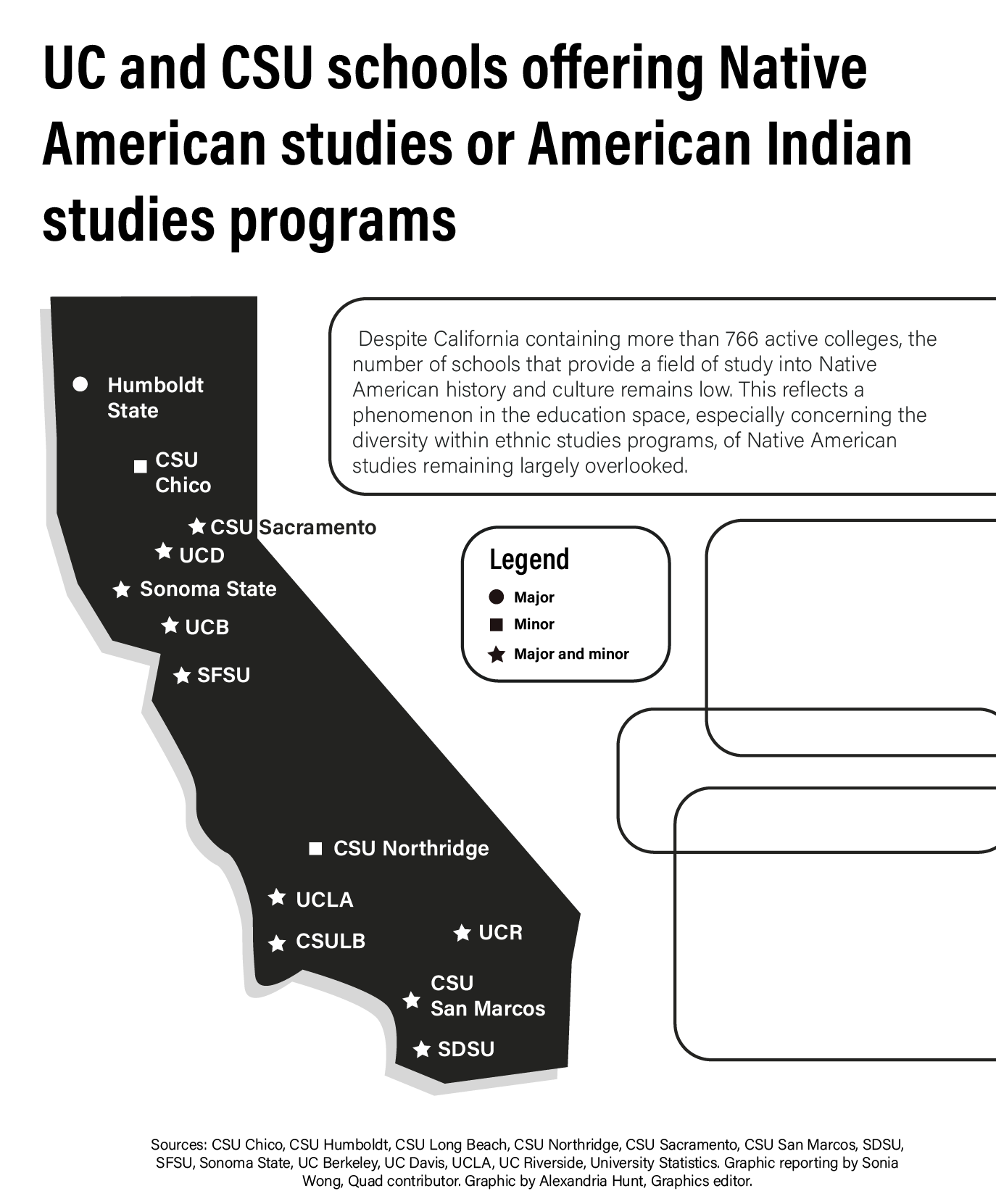Opinion: Education must involve accurate representation of Black history

(Grace Bui-Luu/Daily Bruin)
By Russell Ahmed
Feb. 16, 2023 8:48 p.m.
Spreading knowledge is vital to maintaining a well-informed society – hiding it, on the other hand, is foundational to maintaining power.
Last month, Florida Gov. Ron DeSantis moved to ban a pilot Advanced Placement African American Studies course in his state. He believed that aspects of the course’s curriculum – curated by academic scholars – were fueled by a radical, leftist political agenda.
As a result, the College Board, the organization responsible for managing AP courses, made revisions to the course that omitted various events, historical frameworks and texts that are crucial to Black studies. Throughout the revision process, DeSantis and his officials were in contact with the College Board, even though the board initially claimed that they imparted no influence on the course’s omissions. Works that touched on intersectionality, critical race theory, Black queer literature, the Black Lives Matter movement and other valuable topics were among those that were cut from the curriculum.
The United States cannot ignore its historically consistent failure to treat its citizens equally.
After all, Black history and American history are inseparable. Darnell Hunt, executive vice chancellor and provost at UCLA and former director of the Ralph J. Bunche Center for African American Studies, said the former does not exist without the latter.
“Black history is American history,” Hunt said. “You can’t talk about the development of our nation – its growth and its change over time – without talking about the role of people of African descent.”
Hunt added that the work of scholars in the various disciplines of Black studies is key to interpreting the diverse, interconnected sociopolitical realities in America.
“I think the work that scholars do in this field help us better understand where we’ve been to make sense of where we are now and also point towards what needs to be done in the future,” Hunt said.
From a state government that claims to preach freedom of speech and thought, DeSantis’ motives behind limiting the AP African American Studies curriculum are blatantly hypocritical and malevolent. Concepts such as critical race theory, which is an interdisciplinary historical framework that examines institutionalized racism, have been cut from the AP African American Studies course, silencing the discussion on the role that American power structures have played in marginalizing Black communities over time.
It is crucial that the College Board implement an AP African American Studies course without stripping down the curriculum in a way that its bare bones teach nothing to students about critical race theory.
It is imperative for the College Board to create an AP African American Studies course that addresses the role of American institutions and political leaders in its discrimination toward Black citizens.
“Critical race theory comes out of the tip to answer the question, why – after the abolition of slavery, the Civil War, the Reconstruction amendments, the so-called Second Reconstruction of the 1960s, which brought about the Civil Rights Act, the Voting Rights Act and many other important legislative initiatives designed to eliminate racial inequality – why do we still have so much of it left?” said Cheryl Harris, a professor of civil rights and civil liberties at the UCLA School of Law and one of the nation’s leading experts on critical race theory.
Advocacy groups at UCLA have demonstrated a strong sense of resistance towards changes in academia made to enhance inclusivity in the past.
“I remember during the 1990s here at UCLA, there were speakers who came to campus who were challenging what at the time was called the ‘Multicultural Movement,’” said Richard Yarborough, a professor of African American literature.
This movement aimed to bring writers of color and various backgrounds into college curricula. Up until that point, there were few Black, female or queer authors included in university courses.
It comes as no surprise that such efforts sparked heavy backlash.
“Each generation, we see the resistance morphing and manifesting in different ways, particularly dangerously well,” Yarborough said.
Across campuses and across the nation, movements persist to erase the teaching of the history of Black marginalization in America. This cannot continue to happen.
“The agenda is to convince all these white people that somehow the problem are these ‘other’ people: so that makes Black studies … a threat to white power,” said Robin Kelley, a professor of American history at UCLA.
The proper steps forward by academic institutions and scholars are crucial to creating a more knowledgeable and racially aware society.
“For me, it’s so much bigger than an AP course,” Kelley said. “We have to completely transform education in this country if we’re going to preserve democracy because an informed public is what is required for people to make informed decisions.”
DeSantis’ recent actions underscore the fact that an education that provides frameworks to critique and understand the complexities of American history, not one that seeks to preserve its rampant, inaccurate sense of exceptionalism, should be the highest priority.





